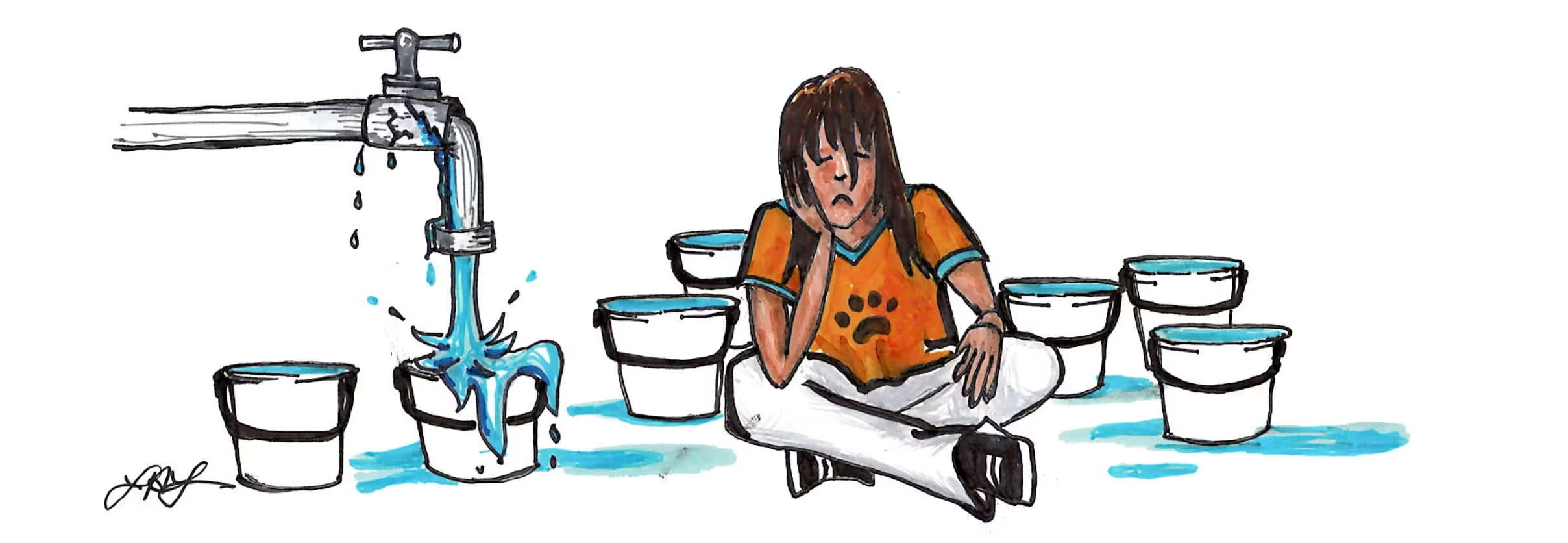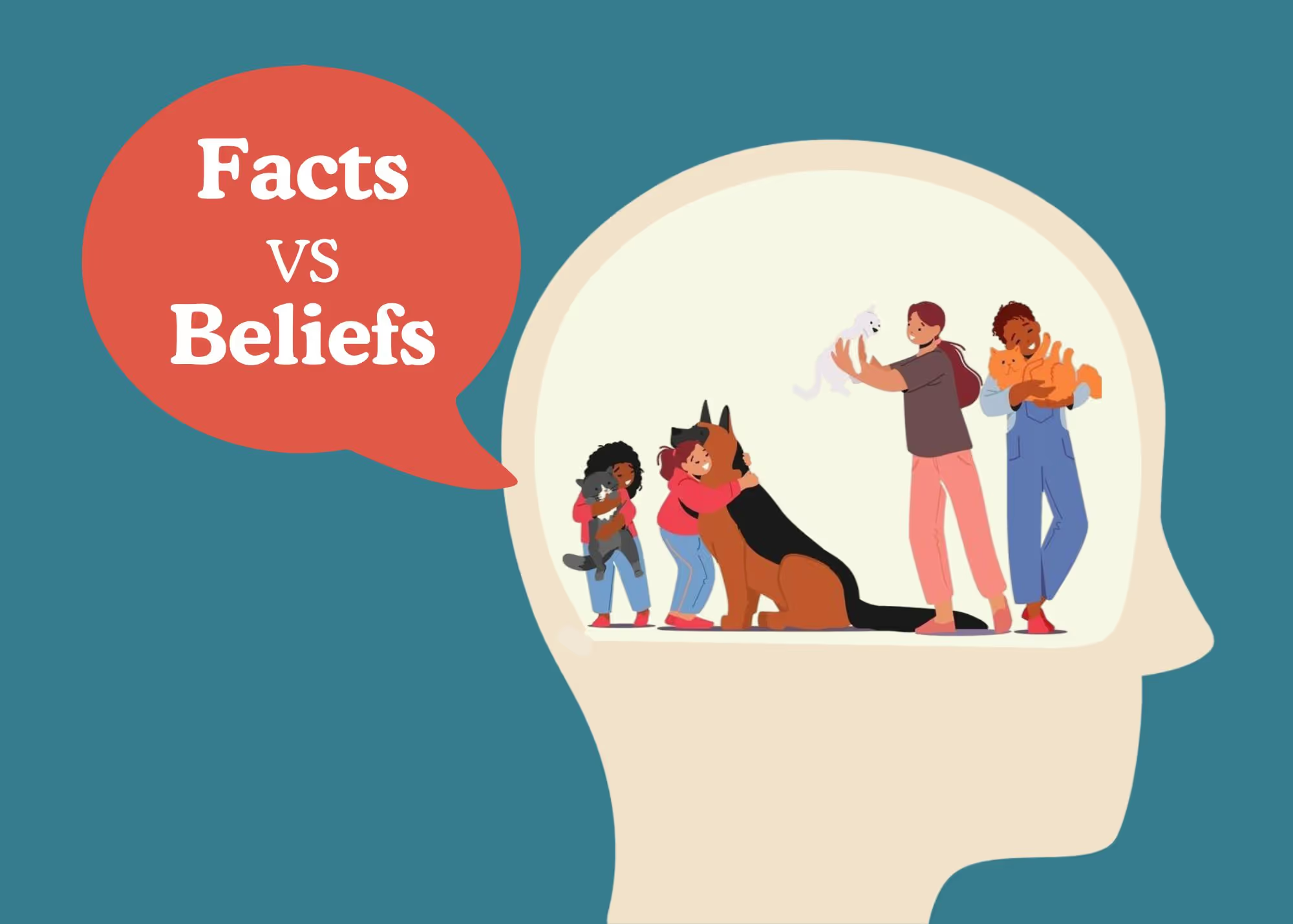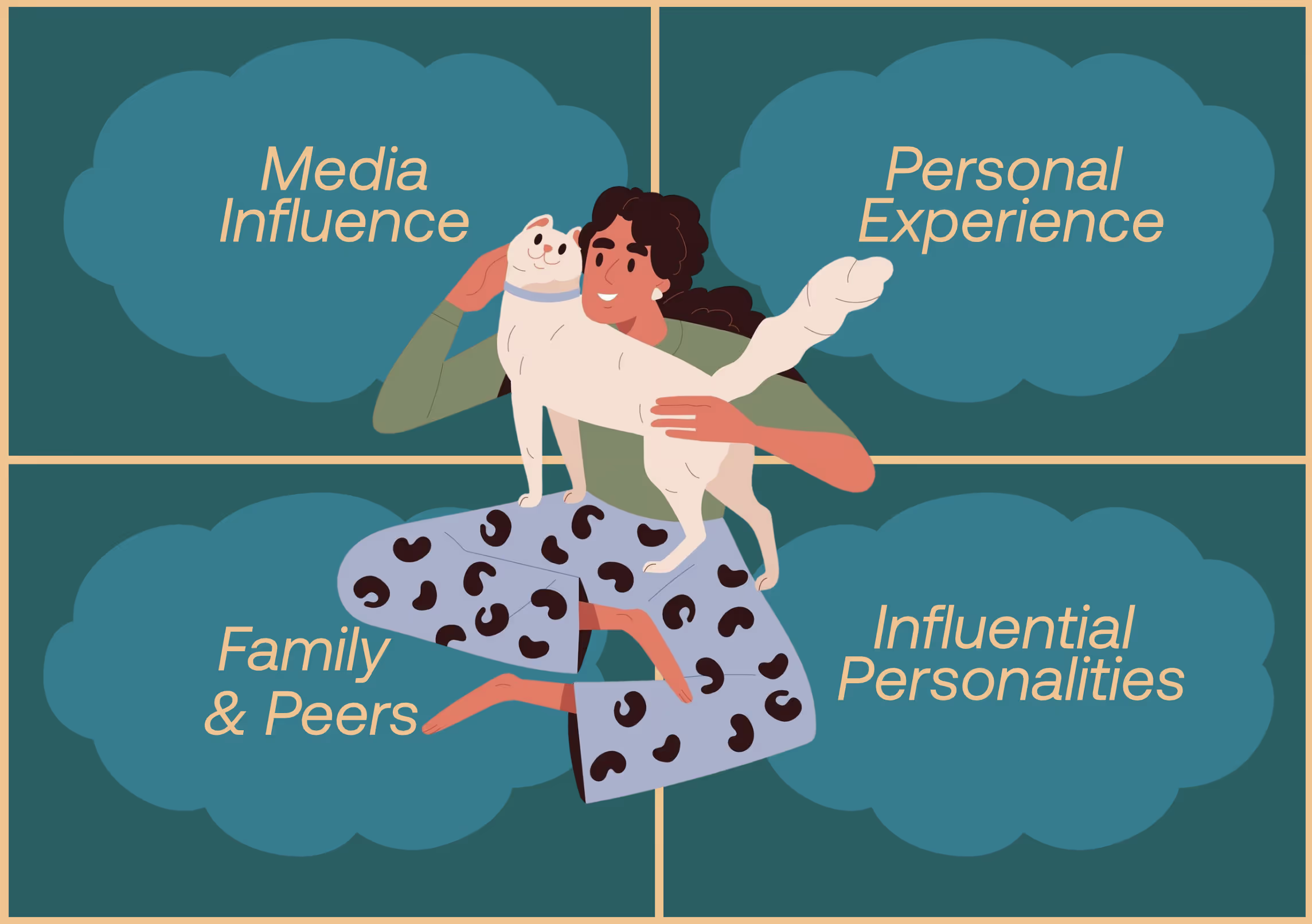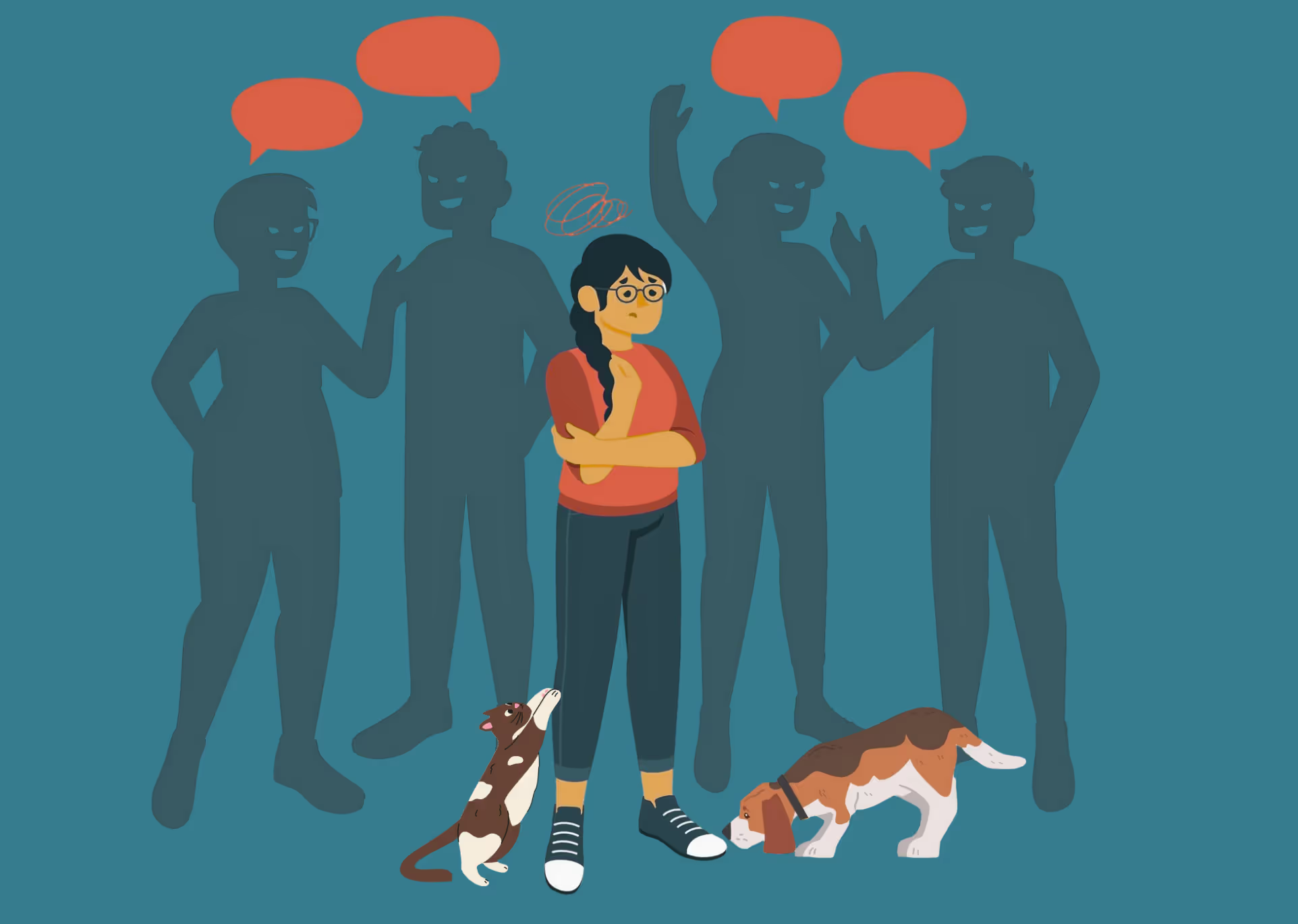Stop talking about irresponsible pet owners
.avif)
<5 minute read>
(Reader’s Note: This blog is 3 of 3 in a series about systems framing for animal care and well-being. If you’re starting here, don’t forget to read post #1: Why have we been overwhelmed and #2: It’s Time to Talk About Systems.)
Fixing Systems, Not People
Mainstream stories about owners and pets often focus on how people are responsible for what they are going through. If an animal isn’t doing well or ends up at our shelter, surely there is an “irresponsible pet owner” to blame. This knee-jerk reaction isn’t surprising - personal responsibility is a deeply held value in American culture - there is a common belief that people are responsible for their situations in life.
When we say that problems come from individual weakness - irresponsible pet owners- we can only think about “fixing” people and what they do. This is like trying to stop a leaky faucet with an endless supply of buckets. When one bucket is full, you run to get another and another. Eventually, you are overwhelmed and exhausted, and the water keeps flowing.

Similarly, there will always be another “irresponsible owner,” one more person to “educate.”
Focusing on individual behavior leaves us exhausted and burnt out. We remain stuck in endless cycles of problems because we are not working on fixing the deeper root causes — the reason a pet owner may be in a particular situation in the first place.
We fix a leak to stop flowing water and we need to repair systems to stop the flow of problems. We want people to be “responsible” pet owners, and people want to be responsible for their pets. Why don’t we repair systems so this is possible? We can, but it starts with talking about systemic issues - why they are happening and what to do about them. If we share more stories and messages about systems, we can play a pivotal role in making them better.
Rethinking Responsibility
When a faucet leaks, we don’t blame the water for flowing; we understand that the plumbing is broken, right? Similarly, pet owners move through broken and dysfunctional systems.
Individual responsibility plays a crucial role in pet ownership, but the choices someone makes depend on the choices available to them. It’s hard for anyone to take good care of a pet without access to veterinary care, pet food, supplies, and services.
Access is different for every pet family, even within the same community. For example, household income, race, ethnicity, neighborhood, and the hardship of a disaster or health crisis will profoundly impact a family’s experience and ability to access what their pet needs. Some people face bigger hurdles than others when providing for their pets. Two people can put the same effort into providing for their animals, but if one person faces more obstacles, their efforts may not take them as far.
We must understand personal responsibility through the lens of what happens to and around pet owners. Experiences are different, and obstacles are real, even if we haven’t faced them ourselves.
Here are a few facts that highlight how experiences can be different for people and pets:
- People often think owners should not keep pets if they cannot afford them, but a pet family's financial status can change anytime. At the start of 2022, 64% of the U.S. population was living paycheck to paycheck. Many people are one job loss or medical emergency away from being unable to pay their bills.
- There are common misconceptions that people experience homelessness because of poor decision-making or lack of drive to work. A 2021 study from the University of Chicago estimates that 53% of people living in homeless shelters are employed. In addition, 50% of women and children in the U.S. experience homelessness because they are fleeing domestic violence.
Making Things Better
When someone shows up at our organization with a pet and a problem, it’s time to see beyond simple labels like “irresponsible.” Using these labels is like picking up one more bucket and carrying it over to the leaky faucet to catch the flow. We won’t ever stop because we’re not talking about why an issue is happening in the first place.
Of course, humans aren’t perfect. Not everyone has good intentions and people make mistakes. There is not a world in which all problems are solved. We’re not ignoring these realities when we stop talking about irresponsible pet owners; we’re moving away from language that doesn’t serve us, animals, or pet families.
If we want a world where more pets and people are thriving together, we need to be part of building that reality. Not everyone has a role that makes it possible to influence bigger structures in the timeframe needed to relieve an immediate crisis. Some people have to address the “now” problems, while those with the bandwidth, skills, and resources to make long-term change work on fixing systemic issues. But we can all contribute to addressing the flow of problems by focusing stories and messages on systems - what they are and how they affect pet families. We all have a voice in systems that can help make them better.
__________________________________________
Explore
Check out SPARC’s Guide to Systems Framing for Animal Care & Well-Being. You’ll find more information about systems framing, examples, and guidance on how to use it in your own work and communications.
There are two earlier posts in this series that demonstrate how narratives are powerful in shaping our ideas about problems and solutions, and why systems framing is so important. Check out: Why have we been overwhelmed? And It’s time to talk about systems.



